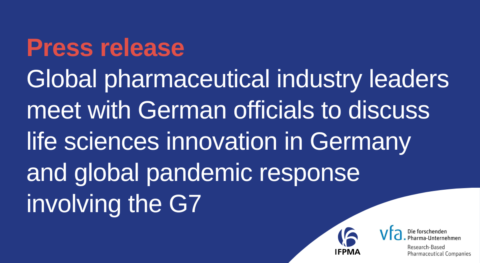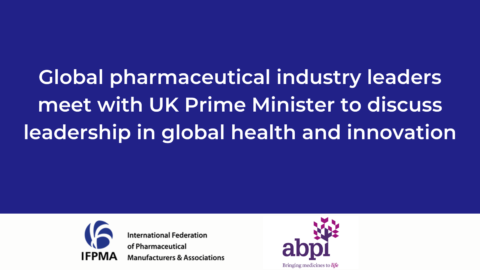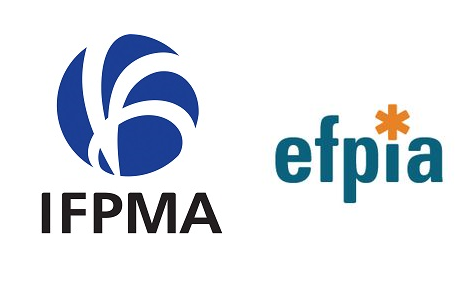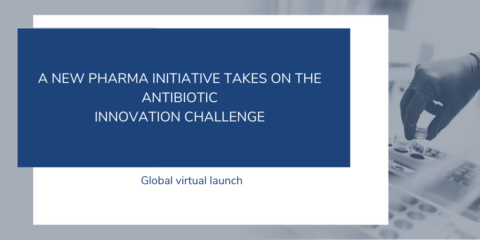The Biopharmaceutical CEOs Roundtable (BCR) is a global policy forum where the CEOs of the companies that are members of IFPMA discuss global health challenges and public health policies impacting biomedical innovation. The International Federation of Pharmaceutical Manufacturers & Associations (IFPMA) is a global association of the world’s leading biopharmaceutical companies and national associations.
BCR Highlights
The Biopharmaceutical CEO Roundtable was held in Berlin on 20-21 June. Global leaders from the pharmaceutical industry met with German officials from the ministries of health and economic development as well as the Federal Chancellor’s office to discuss both national and international developments which impact future innovation and global health. They exchanged views on how the German government and industry can work together to reinvigorate innovation across the life sciences eco-system.
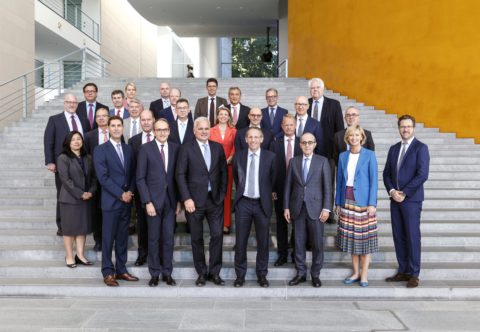
The Biopharmaceutical CEO Round Table (BCR) was held virtually on December 2. Global leaders from the pharmaceutical industry met with the Prime Minister, senior UK Cabinet Ministers and the NHS Chief Executive, to discuss global health and innovation. Their discussions focused on how the industry and UK Government can work together to drive pharmaceutical innovation and rapidly deliver the next generation of medicines to patients worldwide, and deliver on the ambition of the UK Government’s Life Sciences Vision.
The Biopharmaceutical CEO Round Table (BCR) held their first face-to-face meeting since December 2019 in Brussels on Monday 21 and Tuesday 22 June, to discuss global health challenges and public health policies impacting biomedical innovation.
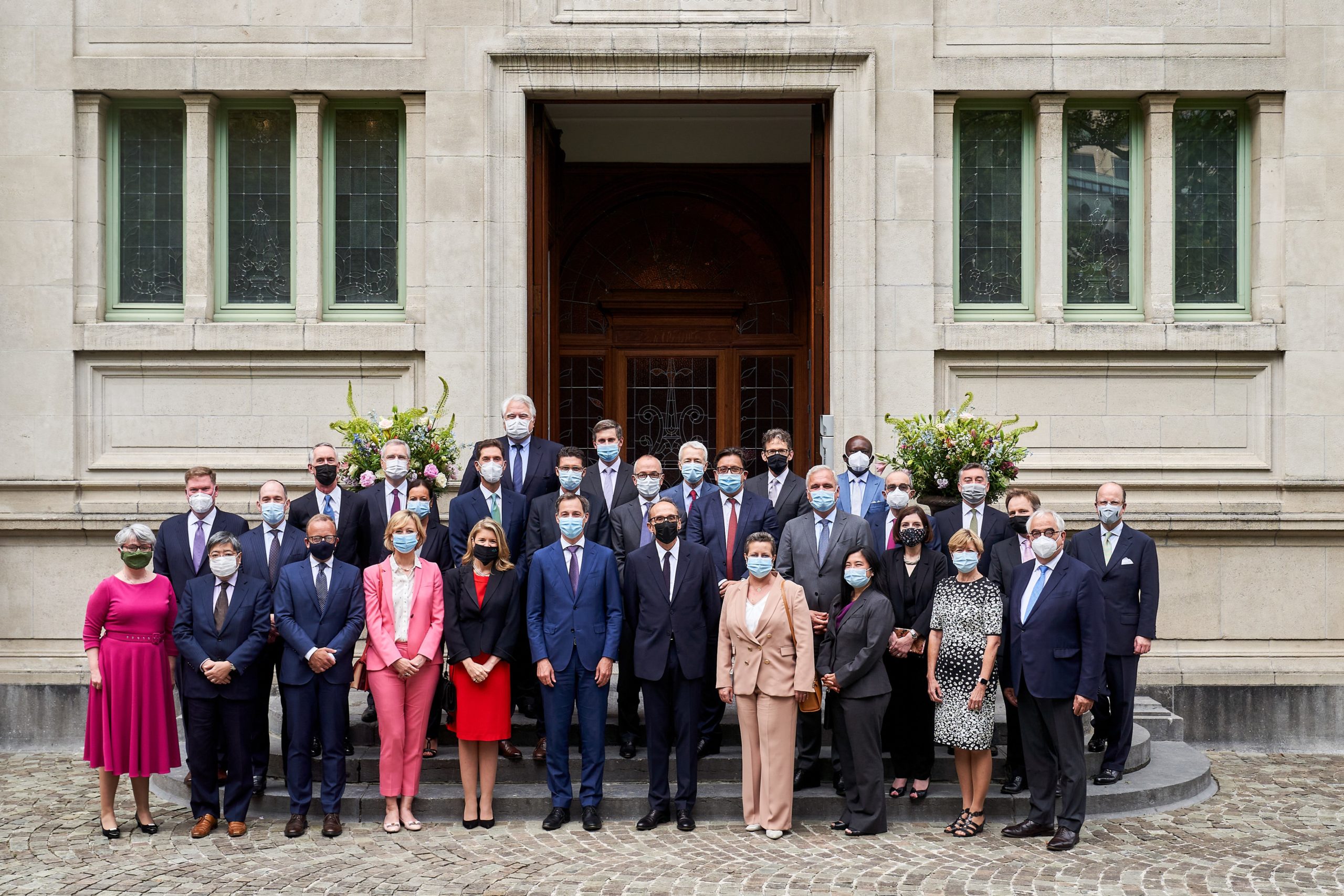
Front row, left to right:
Maeve Collins (Irish Ambassador), Yasushi Masaki (Japanese Ambassador), Xavier Hormaechea (UCB, Kristine Peers (EFPIA), Nathalie Moll (EFPIA), Alexander De Croo (PM Belgium), Jean-Christophe Tellier (UCB), Caroline Ven (pharma.be), Fumie Griego (IFPMA), Deborah Dunsire (Lundbeck), Paul Stoffels (Johnson & Johnson).
Middle row, left to right:
Hubertus von Baumbach (Boehringer Ingelheim), Lindsay Croisdale-Appleby (UK Ambassador), Ioannis Ghikas (Greek Ambassador), Thomas Cueni (IFPMA), Kathiana Bonello Ghio (Malta Ambassador), Stefan Oelrich (Bayer), Paul Hudson (Sanofi), Giovanni Caforio (BMS), David Loew (Ipsen), Steve Ubl (PhRMA), Catherine Mazzacco (LEO Pharma), Olivier Laureau (Servier), Dan O’Day (Gilead), John Banes (Davis Polk), Brian Toohey (PhRMA).
Top row, left to right:
Amadou Diarra (BMS), Bill Anderson (Roche), Joachin Duato (Johnson & Johnson), Dave Rick (Eli Lilly and Company), Eric Cornut (Menarini).
The Biopharmaceutical CEOs Roundtable (BCR) was held in Tokyo on 3-4 June. At the meeting, leaders from four pharma associations (International Federation of Pharmaceutical Manufactures & Associations (IFPMA), the Pharmaceutical Researchers and Manufactures of America (PhRMA), the Japan Pharmaceutical Association (JPMA) and the European Federation of Pharmaceutical Industries and Associations (EFPIA)) handed a joint statement to Japanese Prime Minister Shinzo Abe that calls for Japan to 1) accelerate efforts around UHC especially in developing countries, 2) support development in areas with no effective treatments, such as AMR, through partnerships, regulatory harmonization, and predictable and reasonable IP protection rules, and 3) craft legal frameworks that facilitate the use of AI and big data. PM Abe, who briefly attended the CEOs roundtable, expressed the Japanese government’s resolve to push innovation.
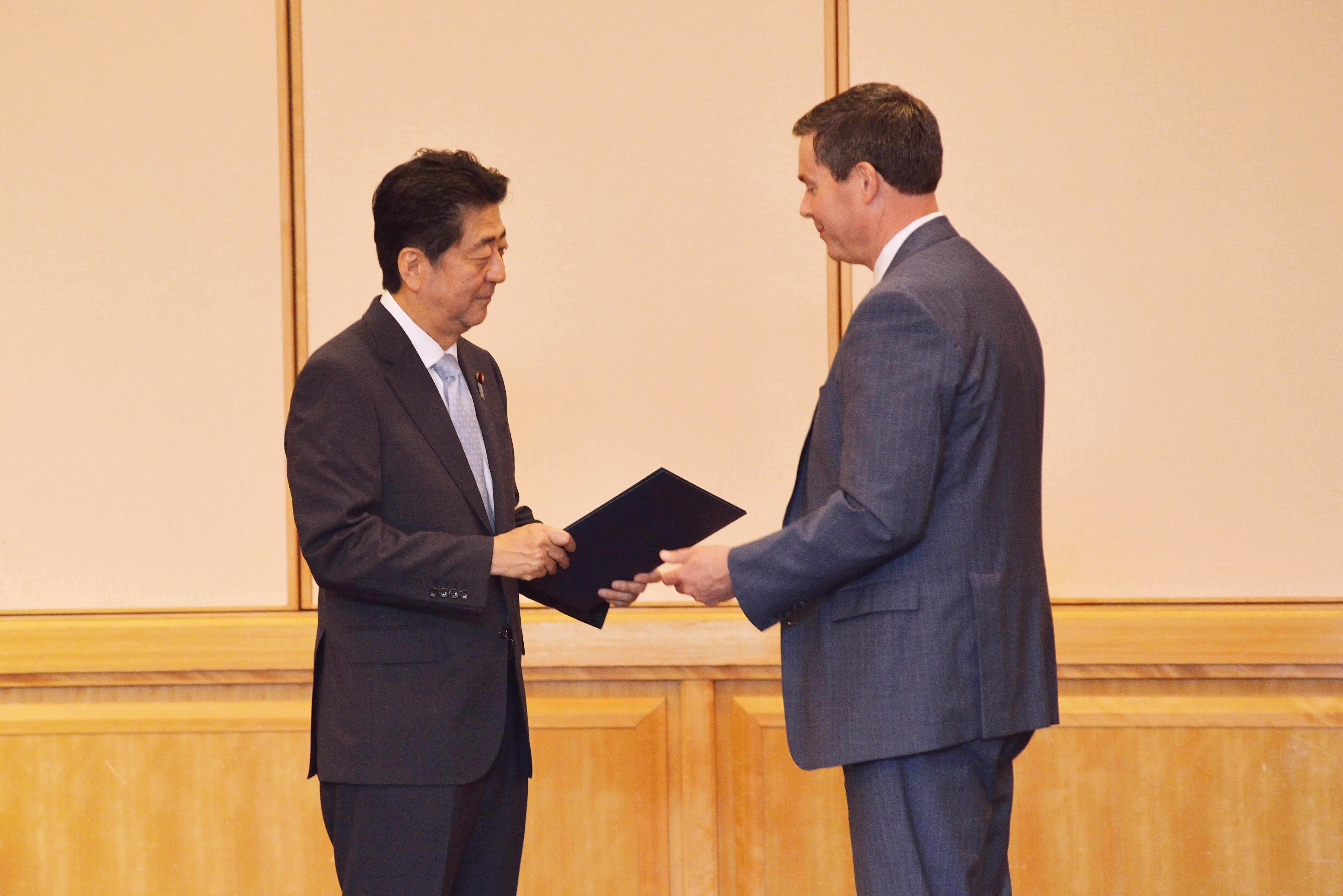
Japanese Prime Minister Shinzo Abe and David A. Ricks, President, Chairman and Chief Executive Officer, Eli Lilly and Company, and President, IFPMA

Group Photo with Japanese Prime Minister Shinzo Abe , Tokyo, Japan
BCR Supported Initiatives

The AMR Action Fund
The world is losing its most powerful tool in healthcare: antibiotics. The reason is rapidly rising antibiotic-resistant infections – also called antimicrobial resistance, or AMR. Superbugs resistant to antibiotics not only threaten lives, they undermine every aspect of modern medicine.
We urgently need new antibiotics, but there are few in the pipeline because of a paradox: despite the huge societal costs of AMR, there is no viable market for new antibiotics. New antibiotics are used sparingly to preserve effectiveness, so developers do not recoup their investment. The result is a huge public health need for new antibiotics, but a lack of funding for antibiotic R&D, particularly the later stages of clinical research, creating a “valley of death” between discovery and patients.
To bridge this gap, more than 20 leading pharmaceutical companies are launching a ground-breaking collective venture to invest nearly $1 billion through a new AMR Action Fund that aims to bring 2 to 4 new antibiotics to patients by the end of the decade. The AMR Action Fund will forge partnerships with institutions and philanthropic organizations to strengthen and accelerate antibiotic development. It will also work with governments to ensure there is a sustainable pipeline of new antibiotics to fight superbugs. Together, we must act now to safeguard our future from this global threat.
Find out more: AMR Action Fund : www.amractionfund.com
In The Press
- About Pharma Online
- Ahead of G20 Summit, Global Pharma Leaders Prod PM Abe to Take Leadership in Addressing Health Challenges PHARMA JAPAN paywall
- Nikkan Yakugyo paywall
- Mixonline
- Chemical-Daily_BCR-Fireside-Chat [English Translation]
- RISFAX_BCR-Fireside-Chat [English Translation]
- Yakuji Nippon [English Translation]








